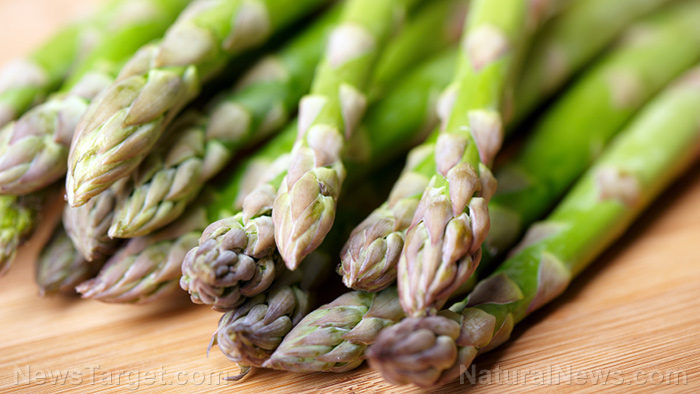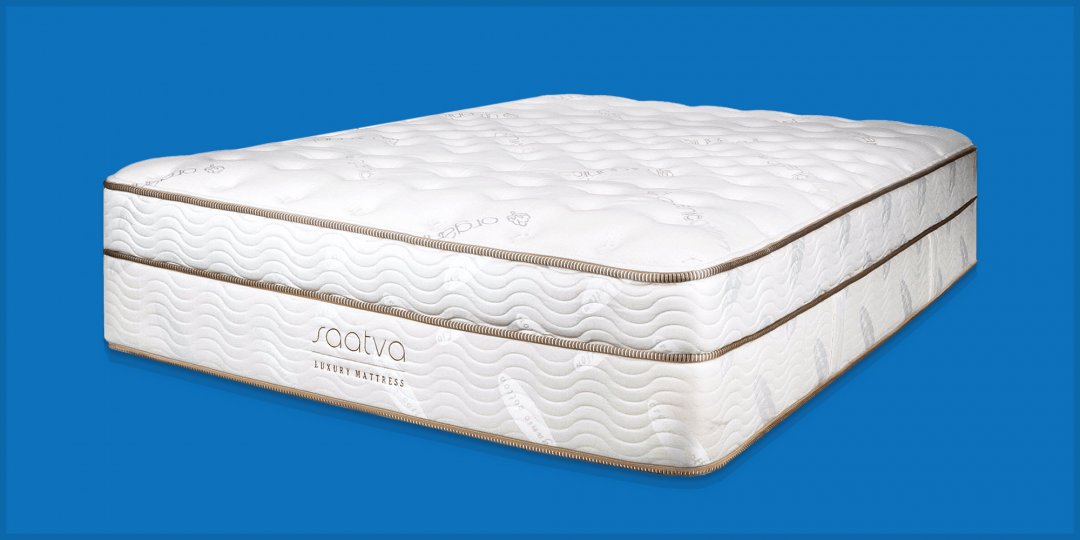Nature Knows and Psionic Success
God provides
5 Ways to Memorize Your Presentation

Research? Check. Writing? Check. Presentation media development? Check. Now it’s time to start memorizing. Gulp. Memorization is one of the more daunting parts of speech preparation. But it’s important. When you memorize large portions of your presentation, great things can happen. You can choose and use the best words consistently. Your speech flows smoothly, allowing you to sound credible and prepared. And you are able to maintain great eye contact with your audience because you aren’t having to constantly look down at your notes. Following are 5 scientifically backed techniques for committing a presentation to memory. Use one or more of these to make that last daunting step so much easier. 1. Break the presentation down into smaller parts. “Chunking” is a practice for learning and memorizing information. Studies show that we learn more effectively if we can take larger things and break them into smaller bits of information. For example, phone numbers aren’t learned as a long string of numbers. Instead, we break them into sequences of three or four numbers to make them easier to remember. You could chunk your presentation into the introduction, each main point, and the conclusion. It’s easier to face a few smaller foes instead of one looming and formidable giant. 2. Write it down. Studies have proven that the act of writing something down can help you remember it better than if you simply typed it out. If you seem to be stuck in a practice rut and can’t seem to break through a memory block, grab a pen and some paper. The thought of writing out your whole presentation might seem cumbersome. But you don’t have to do this for the whole presentation. However, it’s a good technique for those parts that are more difficult to remember. 3. Give yourself breaks. […]
Autism Corner: 7 Simple Ways to Improve Your Child’s Language Skills

Tweet Save Editor’s Note: This article is written for parents. We reprint it here so that you may share it with the parents of your kiddos. Excerpted from the article, “Breaking the Language Barrier” that appears in the March/April 2011 issue of Autism Asperger’s Digest magazine. Reprinted with permission. The Autism Asperger’s Digest is offering a subscription special during April, to celebrate National Autism Awareness Month. Language and communication – we use them to get our needs met, express ourselves and bond with others. Except, that is, if your child is on the autism spectrum. The one comment I hear most from other parents of children with ASD is that they just wish their child could communicate “better.” However, given the structure of the English language, this is not an easily learned skill. Our language is filled with prepositions, adjectives, adverbs, pronouns, idioms and metaphors, clichés – all pretty foreign concepts to our kids who think in literal terms and tend to learn specific to general, rather than the other way around, as do typical kids. Some easy ways I discovered to improve communication with (my son) Brett follow. You can use them with your child with autism, no matter where he or she falls on the spectrum. These techniques are not, in themselves, end products. They are actions meant to be adjusted and played with, so they become relevant for your child. Attention First and foremost, before you try to communicate with your child, before you try to teach him anything, get his attention . This may be as simple as calling his name, or you may have to physically move your child’s face to look you in the eye. Children give indications of attention in different ways, and for some kids with ASD, eye contact is not […]
Does cannabis actually kill brain cells?

To put that longstanding head-scratcher to bed—or at least down for a long nap—The GrowthOp spoke with two medical doctors to better understand how cannabis affects the brain, and if the plant is actually killing brain cells when it’s consumed. Rumours swirling around the health effects of cannabis can get running far faster than the proverbial truth still focused on tying its shoes. However, the reality is that many claims often amount to unsubstantiated chatter at best. Because there is still limited research on the long-term effects of cannabis use in humans, people interested in learning about everything from digestion to mood, brain function and pain management may feel as though they’re left to their own devices to come up with concrete answers. Consider, for example, the age-old question: Does marijuana actually kill brain cells? To put that longstanding head-scratcher to bed—or at least down for a long nap—The GrowthOp spoke with two medical doctors to better understand how cannabis affects the brain, and if the plant is actually killing brain cells when it’s consumed. Short-term consumption is the opposite of harmful “In the short term, consumption of cannabis can actually have clear medical benefits in terms of depression , anxiety, pain , PTSD and nausea associated with chemotherapy ,” says Dr. Ajeet Sodhi, a neurologist based in Thousand Oaks, Calif. “ New studies are showing that the CBD compounds also have neuroprotective effects, and have been shown to be beneficial for several neurologic disorders such as epilepsy and multiple sclerosis,” Dr. Sodhi says. While CBD is growing in popularity , it lacks sufficient long-term-use research , cautions Dr. Indra Cidambi, founder and medical director of the Center for Network Therapy (CNT), New Jersey’s first facility state-licensed to provide outpatient detox services for all substances of abuse. “The medicinal […]
Could dementia be just another manifestation of chronic inflammation?

( Natural News ) Cognitive decline is a part of getting older to some extent, but what causes some people to develop full-blown dementia while others will never experience it? While much about this illness remains a mystery, researchers are honing in on inflammation as a root cause of this condition. Blaming chronic inflammation on aging is an easy answer, but it doesn’t tell the whole story. Some behavioral factors, like obesity, a lack of physical activity, and smoking, can also lead to chronic inflammation, raising your risk of several chronic conditions. In fact, chronic progressive inflammation is behind illnesses like cancer, diabetes, chronic obstructive pulmonary disease, and arthritis in addition to Alzheimer’s disease . This might lead you to assume that inflammation is bad, but acute inflammation is actually a beneficial response by your immune system, For example, Everyday Health points out that when you have acute pneumonia, inflammation is your first line of defense in fighting the cause of the lung infection. Chronic inflammation is different, however, and there’s a growing body of evidence pointing to the role it plays in Alzheimer’s. Many of the genes identified as putting people at risk of Alzheimer’s are related to aspects of immunity regulating inflammation. In addition, the cerebrospinal fluid and blood of people with Alzheimer’s disease and mild cognitive impairment indicate greater levels of inflammation than samples of those who don’t have dementia. While researchers are still trying to determine conclusively whether the inflammation is the result of the disease or the cause of it, it’s looking increasingly like it is indeed the cause. In fact, scientist believe that inflammation in your 40s and 50s, if not earlier, could influence neurodegeneration and Alzheimer’s symptoms that appear later in life. 100% organic essential oil sets now available for your home […]
Eating for mental health: Foods that nourish your brain and fight depression

( Natural News ) Eating well can help improve your physical health and strengthen your immune system. But if you want to boost your mental health , you can eat foods rich in folate and omega-3 fatty acids, which can help improve your mood. Foods that can improve your mental health Several studies show that individuals diagnosed with depression are deficient in certain vitamins and compounds. The good news is, these naturally occurring compounds can be obtained from various sources. Foods rich in these vitamins and compounds can act as natural antidepressants, and adding them to your diet is a great way to avoid the use of antidepressants, which are often linked to many negative side effects. According to a study published in the Journal of Affective Disorders , folate, omega-3 fatty acids, tryptophan, and other B vitamins can help improve the mood of individuals with depression. The researchers also advised that factors like diet, exercise, and sleep quality should be considered when determining effective methods of improving the mental health and mood of those with depression. If you want to enhance your mood or manage your depression through natural means, consider adding more of the foods listed below to your diet. Asparagus Asparagus is full of folate and omega-3 fatty acids. It also contains calcium, fiber, iron, magnesium, phosphorus, potassium, and vitamin K . The folate in asparagus helps lower your risk of developing depression by preventing an excess of an amino acid called homocysteine from forming in your body. This amino acid can block blood and other nutrients from reaching the brain. The power of the elements : Discover Colloidal Silver Mouthwash with quality, natural ingredients like Sangre de Drago sap, black walnut hulls, menthol crystals and more. Zero artificial sweeteners, colors or alcohol. Learn more at […]
Nature therapy, such as forest bathing – mindfully walking through nature – can help to reprogram our overstimulated minds and bodies

Nature therapy, such as forest bathing – mindfully walking through nature – can help to reprogram our overstimulated minds and bodies Engaging mindfully with nature can put you in touch with your ‘deep ancestral programme’, a Harvard-trained academic says At the base of the Ayus Wellness Experience forest canopy walk. Photo: Ayus Wellness We walk in silence slowly through the forest in Gunung Mulu National Park, Malaysian Borneo, and in the stillness, nature comes into sharp focus – the thick moss on tree trunks, the latticework of fine vines, a lizard that scuttles across the path. There’s the gentle gurgle of the Melinau River and the chatter of birds. Without the intrusion of conversation, the vividness of the jungle becomes surreal, dreamlike. I begin to relax, my shoulders drop. This is how our forebears walked through the forest thousands of years ago – slowly, attentively, listening for the sound of water, possible food, smelling and touching, all the senses engaged. And walking through the forest in a similar manner helps to reprogram our overstimulated minds and bodies, and bring us back to optimal health, says Professor Gerard Bodeker, chairman of the Mental Wellness Initiative for the non-profit Global Wellness Institute. “Attentiveness to the whole forest environment has been part of our evolutionary history, and coming back into nature in a way that is attentive connects us to our deep ancestral programme,” says Bodeker, who is also the director of Ayus Wellness, a wellness experience company founded in the rainforest in Mulu, Borneo. Professor Gerard Bodeker, chair the Mental Wellness Initiative for the non-profit Global Wellness Institute, and director of Ayus Wellness. Photo: Ayus Wellness The idea of nature therapy has been around a while. The American biologist Edward Wilson coined the term “biophilia” in 1984 to explain the connection […]
Physical fitness equals brain fitness for older men, according to study

( Natural News ) Brain function tends to decline with age. The good news is that exercise is found to boost brain health, especially for aging men. A study published in the Journal of Applied Physiology revealed that older men who exercise regularly saw better improvements in their cognitive function or executive function than older women. Executive function refers to a person’s ability to focus, pay attention, and manage time. Researchers from York University and McGill University in Canada observed men and women with an average age of 67, who reported their daily physical activity level during the study. They also reported their height, weight, age, sex, and resting heart rate, which the researchers used to measure their cardiorespiratory fitness. Cardiorespiratory fitness measures the amount of oxygen in the body and how well it is delivered to the muscles during exercise. Fitness levels can also affect the brain’s gray matter, which determines cognitive function. In addition, the researchers conducted brain imaging tests to record the participants’ nerve function both within specific brain networks and among all networks. Although the women exhibited higher local network efficiency and lower global network efficiency, the men saw greater improvements in cardiorespiratory fitness. This suggested that gender makes a difference in the overall effect of exercise on the brain. “Our findings that [cardiorespiratory fitness] is associated with brain function in a sex-dependent manner underscore the importance of considering sex as a factor when studying associations between exercise and brain health in older adulthood,” wrote the researchers. Mother Nature’s micronutrient secret : Organic Broccoli Sprout Capsules now available, delivering 280mg of high-density nutrition, including the extraordinary "sulforaphane" and "glucosinolate" nutrients found only in cruciferous healing foods. Every lot laboratory tested. See availability here. How much exercise do older adults need to improve their brain function? […]
6 Supplements to Boost Mitochondrial Health and Energy in ME/CFS

What are mitochondria? Mitochondria are microscopic organelles – specialized structures found in living cells. They exist in large numbers within just about every cell in our bodies. Mitochondria evolved originally from some of the very first bacteria on Earth. Millions of years ago, when the Earth was still barren of life, select bacteria learned how to use the oxygen in Earth’s atmosphere to make energy. Throughout evolution, a strain of these organisms joined with larger cells and co-evolved into animals, plants, and fungi, and eventually into humans. Known as the “powerhouse of the cell,” mitochondria are our batteries; synthesizing our food and the air we breathe into energy. They are responsible for a whopping 90% of our energy production. Every thought, every physical action we make, is powered to a great degree by these tiny organelles. If our mitochondria stop working, we die within seconds. No energy, no life. Those ancient bacteria are central to our survival. ME/CFS (myalgic encephalomyelitis/chronic fatigue syndrome) can be, in part, caused mitochondrial dysfunction. When you feel your batteries running low and your eyelids drooping, it may be your mitochondria calling for help! Luckily, some supplements help boost mitochondrial function and improve stamina. The following is a list of six, including descriptions of how they work: Two antioxidants boost mitochondrial function: Coenzyme Q10 and Glutathione The process of mitochondrial energy synthesis results in some molecular waste. The waste molecules, known as free radicals, are highly reactive and can damage or destroy surrounding tissue, including mitochondria themselves. Inefficient mitochondrial function as a result of illness can result in greater production of free radicals, creating a vicious cycle of tissue damage and loss of stamina. Coenzyme Q10 (CoQ10) and glutathione are two nutrients to the rescue! 1. Coenzyme Q10 Coenzyme Q10 is an antioxidant naturally produced […]
Transform your life by owning your morning routine with our top tips
YOUR alarm goes off. You hit snooze, drift back to sleep for 10 minutes. You hit snooze again, start the day late and feel like you’re playing catch up… Repeat for 25 years. Sound familiar? Only one in four people are natural early risers who wake up raring to go – the rest of us are on the back foot before we even reach the office.* But developing a good morning routine could be the key to a more productive, successful and healthier life. You can transform your life by owning your morning routine Credit: Getty Images From Jennifer Aniston to Kim Kardashian West, some of the world’s most successful people claim their secret is an early-morning schedule. While yoga and green juices at 6am isn’t realistic for everybody, making small tweaks to your morning routine can have a big effect on the rest of your day. Get Up and at ’em Good news: waking up early may be less important than getting up at the same time every day. “People who get up at a regular time with stable rhythms of being active in the daytime and inactive at night are less at risk of depression and have better general health than those with varied sleep patterns,” says Daniel Smith, professor of psychiatry at Glasgow University. “Work out how much time you need to do all your morning tasks comfortably, set your alarm for a time that makes that achievable and get up at that time each day to establish a routine,” says Daniel. Instead of a long lie-in, have 30-minute naps if you want to make up lost slumber. Rise and shine before everyone else Getting up before your snoring partner will allow you to have some important me-time Credit: Getty – Contributor It might sound like […]
Acupuncture: Better than meds for pain relief

( Natural News ) As the opioid crisis continues to kill record numbers of people and ruin countless lives, many people are wishing for a better way to help people in pain. What few realize, however, is that there is already an excellent solution that can work even better than pain meds in some cases, although few doctors will mention it: acupuncture. This ancient Chinese medicine treatment has stood the test of time for a good reason: It actually works. It involves inserting thin needles into the skin at specific points throughout the body, but don’t balk if you’re squeamish; many people report feeling no pain or even discomfort – perhaps just a slight tingling sensation at the moment of insertion depending on the practitioner’s skill. And the benefits make it well worth any reservations you might have about the procedure. Research has shown that acupuncture can be effective at relieving pain. While the Chinese explanation involves stimulating parts of the body in order to release a flow of energy, the Western explanation is that the needles stimulate a nerve, which tells the brain to release beta-endorphins. These work almost like your body’s own natural opioids to lower your pain threshold. Some theorize it may change the cells in the connective tissue surrounding the pressure points in ways that reduce pain. Studies have shown that it can help with pain in the neck and back, headaches, and osteoarthritis pain. In research published in the Archives of Internal Medicine that pooled the results of 29 different studies involving almost 18,000 people, acupuncture relieved people’s pain by 50 percent. A different review carried out by Canadian researchers found that acupuncture worked to safely and effectively relieve neck pain. Mother Nature’s micronutrient secret : Organic Broccoli Sprout Capsules now available, delivering 280mg […]
Put some purple on your plate: Why you should eat more of these powerhouse veggies

( Natural News ) You’ve probably heard that we should “eat a rainbow” if we want to be healthy, with the brightest-colored natural, whole foods often containing the most nutrients. When you put this advice in action, however, your plate probably leans more toward the red, orange, yellow and green parts of the spectrum given the number of foods in these shades that are readily available. If purple tends to be absent from your plate, here’s what you need to know. Anthocyanins are what give purple vegetables their vibrant shades . They not only protect the vegetables from damage from the sun and cold, but they also attract pollinators. However, it’s not just the plants that benefit from anthocyanins; they can also help protect you from lifestyle illnesses and protect your cells from damage. What can anthocyanins do for you? Here’s a closer look at the top benefits of anthocyanins. Heart health: A study published in the American Journal of Clinical Nutrition showed that anthocyanins can improve cardiovascular risk factors thanks to their ability to reduce blood pressure and artery stiffness. Cancer protection: The anthocyanins in purple sweet potatoes were shown in a study published in Molecular Nutrition & Food Research to protect against colorectal cancer. Purple corn has also been shown to help protect against colon cancer. Anti-inflammatory effects: Anthocyanins are quite good at reducing the chronic inflammation that is behind a host of modern illnesses, including some types of cancer, obesity, heart disease, asthma, Alzheimer’s disease, allergies, arthritis, type 2 diabetes and depression. The power of the elements : Discover Colloidal Silver Mouthwash with quality, natural ingredients like Sangre de Drago sap, black walnut hulls, menthol crystals and more. Zero artificial sweeteners, colors or alcohol. Learn more at the Health Ranger Store and help support this news […]
Fit and ready: Self-defense tips for preppers

( Natural News ) If you’re worried about your personal safety every time you leave your house, be proactive and learn self-defense. Staying fit and undergoing combat training can also teach you techniques that you can use to protect yourself if you need to confront an attacker. (h/t to ReadyNutrition.com ) Situational awareness’ crucial role in self-defense The first step to learning how to defend yourself is developing your situational awareness . This skill can be learned at home, and it will help improve your ability to identify potential threats and strategic thinking skills, as well as raise awareness of your surroundings. With enough practice, you can train your brain to identify mental cues that will help you analyze situations or problems. Preppers hone their situational awareness to identify and avoid dangerous situations. When SHTF, preppers can rely on situational awareness to help them quickly analyze the problem and think of effective and practical solutions for survival scenarios. You may not realize it at the time, but you use situational awareness in common scenarios like while you’re driving and paying attention to the other cars around your vehicle. Aside from driving, you’re also keeping an eye out for road hazards and traffic. As a prepper, you need situational awareness to make quick decisions when SHTF and every second counts. Make it a habit to observe other people and details like: People acting strangely Possible escape routes Potential weapons Don’t get distracted and pay attention to what’s going on around you. This allows you to think ahead so you can identify potential threats and determine how to avoid them. When in a public area, like a restaurant, choose a table near the entrance. If anything happens while you’re inside, you can easily escape the premises. 100% organic essential oil sets […]
What is Castor Oil and 7 Home Uses

Castor oil may not seem like the sexiest supplement out there, but it can do a whole lot more than relieve constipation and induce labor. If your mom never gave you castor oil when you were a child to get things moving, not only are you lucky, but you also wouldn’t understand the general public’s aversion to it. But castor oil’s bad rap is a little unfair. This oil has a ton of health benefits and unusual uses that will help you hack everything from hair growth to period cramps. Castor oil is pressed from the castor bean and originally contains a toxin element called ricin, but due to the heating process during the creation of castor oil the ricin is deactivated and safe to ingest or apply externally. Castor oil historical uses Historically, castor oil has been used as an all-in-one miracle elixir, treating everything from constipations to achy joints to skin rashes. Because unpleasant taste and thick texture taking castor oil as an internal remedy has gone out of style in the recent past. It doesn’t smell or taste like anything you would want to eat, but the health benefits might be worth it for you. Castor oil is incredibly high in fatty acids, flavonoids, phenolic compounds, amino acids and phytosterols. Each of these components offer your body something unique and beneficial. Castor Oil Health Benefits Ricinoleic acid, the main fatty acid in castor oil, has been shown to help severely reduce inflammation, relieving pain from the joints or affected areas. Flavonoids and phenolic compounds are antioxidants that help your body scavenge for free radicals that damage cells and can lead to various cancers and heart disease. Some studies suggest that flavonoids also protect the brain by boosting your memory and possible your mood. Amino acids are […]
What Foods Are Good For Memory And Focus? – Fashion – Nairaland
As we age our brain starts to work slowly. We start to face different issues when our brain stops working properly. Do you lack the mental focus and brain power to excel in life? Are you are struggling with your memory loss issues? There are several issues an individual can face in your life, but the most troublesome issues are of your poor memory. Actually, the brain is the most important part of the body. Have you ever been concerned about your memory? One of the ways to boost your brainpower may be through the use of a nootropic supplement. Neural Fusion is a dietary supplement that has recently been introduced to the healthcare market to improve mental health and performance. According to this formula, anyone who is struggling with a lack of brain problems and memory loss can recover an excellent memory. The formula contains natural ingredients that are 100% safe and have no side effects. Most importantly, all ingredients have been approved by the FDA. In addition, it has been used by many people responsible for its effectiveness as energy, motivation and memory enhancer. https://www.youtube.com/watch?v=UB7_khsFf_Y
Don’t stress, but high blood pressure is bad for your brain, too

( Natural News ) High blood pressure (hypertension) is a condition usually associated with older adults. According to an alarming study, however, young adults with elevated blood pressure may have less gray matter in their brain . The study was published in the journal JAMA Neurology . When you’re young, you may be more concerned about obvious signs of poor health like sudden weight gain or acne breakouts. Not many young people consider their blood pressure, which can significantly affect brain and heart health. Blood pressure is measured using two numbers: Systolic blood pressure (SBP) – SBP is the top number in a blood pressure reading. It refers to the pressure against which your aorta has to pump. The aorta is a large vessel off the left ventricle and it sends blood from the heart to the rest of your body. The higher the pressure, the harder the aorta and the left ventricle have to work to send blood to the rest of your organs. Diastolic blood pressure (DBP) – DBP is the number on the bottom. It refers to the pressure in the systemic arterial circulation as your left ventricle is filling with blood to prepare for the next heart contraction. Increased pressure makes your heart work harder, causes arterial stiffness, and results in less efficient blood flow. This increased pressure also decreases the amount of oxygen and essential nutrients sent throughout your body. Five categories are used to define blood pressure readings : A healthy blood pressure reading is less than 120/80 millimeters of mercury (mm Hg). When your blood pressure is elevated , SBP is between 120 and 129 mm Hg while DBP is less than 80 mm Hg. Physicians don’t require treatment for elevated blood pressure, but they may recommend certain lifestyle changes to help […]
Best Mattresses of 2019

Ready For a New Bed? These Mattresses Hold Up The AskMen editorial team thoroughly researches & reviews the best gear, services and staples for life. AskMen may get paid if you click a link in this article and buy a product or service. A great mattress can be the key to a good night’s sleep. And, a good night’s sleep impacts your overall health and wellness. “Sleep is critical to your body for recovering from your daily routine,” says Dr. Jennifer Dour, D.C., owner or clinic director of Garden State Spinal Care . “While you sleep, your brain is being flushed from toxins and your body is being repaired. So if you are not sleeping well, you are actually damaging your brain and body.” Making the right mattress purchase is twofold: the investment is just that – mattresses are not cheap; and once you make a decision and bring a new mattress into your home, you’re likely stuck with said mattress for the foreseeable future. (Have you ever tried to return a mattress after use?!) Don’t make your selection hastily. Consider all of the factors that make a mattress great … and ideal for you . How to Pick the Right Mattress for You Mattress Types: There are different types of mattresses available to you: innerspring, memory foam, specialty foam, hybrid, pillow top, gel, waterbed and air bed. The tried-and-true option is the innerspring, also known as the coil mattress, which uses metal springs for support and is ideal for all types of sleepers (back, side, and tummy). Memory foam mattresses are also quite popular because they conform to your body as you sleep and promise maximum comfort and support, while keeping your sleep partner undisturbed at night. You’ll find descriptions of different types of mattresses here . Mattress […]
Neglect of children at the border has long-term consequences

Caitlin Dickerson’s New York Times article titled “‘There Is a Stench’: Soiled Clothes and No Baths for Migrant Children at a Texas Center” should have us all quaking. How can government lawyers argue that no soap, lights on all night, and minimal food are safe and sanitary conditions for children? Who have we become as a nation? This article prompted the Society for Research in Child Development to issue a statement about the long-term consequences of separating children from their parents. It starts, “The science is clear…” and goes on to cite well-established research studies showing that children separated from their parents experience toxic stress that has cascading negative effects on social-emotional, mental, and physical health, as well as on cognitive outcomes. Authors The Society for Research in Child Development response offers critical data that bears on the future trajectories for these children, but it does not go far enough. There is ample research to show that cleanliness, sleep, nutrition, and exercise are imperative for a growing brain. What the research shows No soap contributes to a disease-ridden environment, and children with health issues tend to have poor emotional skills and mental well-being . Common complications of not treating illnesses like flu and sinus infections, for example, include bacterial pneumonia, dehydration, and ear infections. Deplorable physical conditions including dirty and disorganized environments can cause depression and even aggressive, angry, or violent behavior . Lights on all night disturbs sleep patterns that can impact brain development and future learning skills. The effects of insufficient sleep on children include cognitive confusion and attention, memory, and learning problems, as well as difficulties with executive functioning skills. It is not clear whether these effects persist over the long term even if conditions improve. With minimal food , children do not get the nutrients […]
Everything You Need To Know About Fasting

Fasting is the practice of abstaining or reducing consumption of food, drink, or both, for a specific period of time. Everyone may fast for at least some part of the day. Generally the eight or so hours that one spends sleeping every night. Physiologically, fasting can refer to a person’s metabolic status after not eating overnight. Or even the metabolic state after the complete digestion of a meal. Once you’ve gone eight to 12 hours without eating, the body enters a state of “fasting.” Why Fast? The practice of fasting can lead to a number of metabolic changes within the body. These changes typically begin approximately three to five hours after eating. This is when the body enters a “post-absorptive” state – rather than the state on ongoing digestion. The ongoing digestion is where eating frequent meals means the body is always involved in some sort of digestive activity. Whether you practice fasting for health reasons or for spiritual reasons, most people will have to fast at some point for medical reasons. Patients undergoing surgery or other medical procedures that require a general anaesthetic will usually fast prior to treatment. Prior to a number of other medical tests, fasting is also practiced. This includes cholesterol testing, blood glucose measuring, or a lipid panel. This enables doctors to achieve accurate results and establish a solid baseline to inform future testing, if necessary. 20 Amazing Benefits Of Intermittent Fasting. Weight Loss Instead of running on fuel from the food you just eat, fasting allows your body to tap into reserves. For example, fat, which accumulates on the body, can be burned whenever food supply grows scarce. This results in a slow, steady weight loss that can be a huge benefit. Since fasting is often incorporated as a lifestyle change instead of […]
FARMacy: Gardening does wonders for your mood

( Natural News ) Stressed, anxious, and depressed students may find relief in gardening. The Counseling and Psychology Services (CAP) department of the University of Central Florida (UCF) prescribes gardening to improve their students’ mental health . UCF mental health clinicians encourage their students to volunteer at the campus’ botanical garden where they can engage in a peaceful environment through activities like gardening. This garden prescription is part of their movement called “Thrive with CAPS” which aims to provide viable, preemptive strategies for healthier coping with stress and anxiety among students. (Related: Gardening and volunteering boosts mental health, relieving stress, anxiety and depression .) This concept is a non-stigmatizing approach to mental wellness. It encourages students to engage in wellness behaviors not because they are anxious or depressed , but because they can live better quality lives and learn how to better cope with life’s challenges. Associate Director Teresa Michaelson also said they want their students to think about their own well-being, health, and self-care. “Instead of focusing on, ‘I’m depressed and sad all the time,’ let’s shift it to, ‘I’m struggling right now, so I need to take extra steps to care for myself. What are some things I can do to help me feel better?’” said Michaelson. How gardening boosts mental health Gardening and being one with nature provides numerous health benefits and positive feelings, which contribute to a healthy state of well-being. Being one with nature gives you a safe, peaceful environment where you can relax and quiet your mind. 100% organic essential oil sets now available for your home and personal care, including Rosemary, Oregano, Eucalyptus, Tea Tree, Clary Sage and more, all 100% organic and laboratory tested for safety. A multitude of uses, from stress reduction to topical first aid. See the complete listing […]
Add this brain-saving habit to your Alzheimer’s prevention strategy

It’s 2019 and there is still no cure for Alzheimer’s. Despite all of the research, science doesn’t seem to be any closer to a cure. At least not one that can turn back the damage the disease does to one’s brain… or works like an immunization to afford solid brain protection for those of us unscathed so far. Some medicines are designed to help slow the progression, giving a patient perhaps a few more years of dignified life and precious memories. Does that mean you’re doomed to end up with this dreaded disease? No. You can stand up to it… Science has proven that there are several important Alzheimer’s prevention strategies that you can use, like: Exercising Eating healthy Stopping smoking Practicing brain training Watching your weight and blood sugar Maintaining healthy blood pressure and cholesterol Avoiding excess alcohol And, now, according to new research at the University of Bergen, there’s one more thing you need to add to that list — religiously practicing good oral hygiene. The important connection between your mouth and your brain In fact, the team of scientist discovered that brushing and flossing don’t just help you avoid cavities, by preventing gum disease or gingivitis, you can also stave off Alzheimer’s. You don’t only avoid holes in your teeth by keeping good oral hygiene, researchers at the University of Bergen have discovered a clear connection between gum disease and Alzheimer´s disease . Researchers had previously found that the bacteria that cause gingivitis can move from the mouth to the brain where the harmful enzymes they excrete can destroy the nerve cells in the brain. However, that process had never been proven in humans. But, now thanks to those Bergen researchers, we have DNA evidence that gingivitis can lead to Alzheimer’s. They studied 53 people with […]
